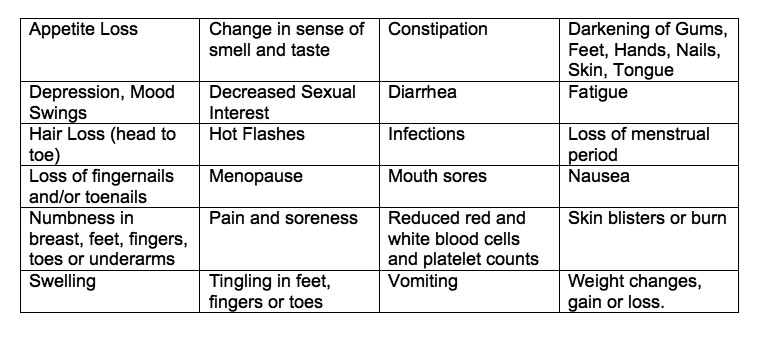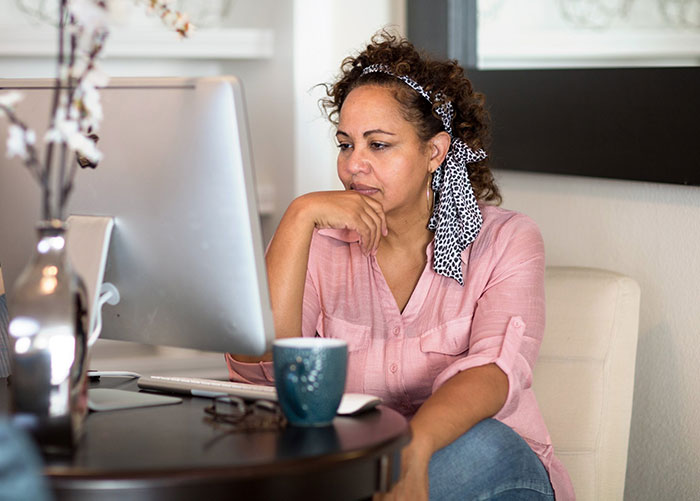Breast Cancer
Breast Cancer Treatments
In cancer care, doctors specializing in different areas of cancer treatment—such as surgery, radiation oncology, and medical oncology—work together with radiologists and pathologists to create a patient’s overall treatment plan that combines different types of treatments. Cancer care teams include a variety of other health care professionals, such as physician assistants, nurse practitioners, oncology nurses, social workers, pharmacists, counselors, nutritionists, and others.
For more information, always discuss and request more information about your treatment plan with your medical team. Remember “It’s all about You” and your team all are in this together.
COMMON SIDE EFFECTS
You may have some or a lot of these side effects which are totally NORMAL after surgery, with chemotherapy, hormone and radiation therapy treatments. Keep a record and let your doctor know what is happening…read more
You may have some or a lot of these side effects which are totally NORMAL after surgery, with chemotherapy, hormone and radiation therapy treatments. Keep a record and let your doctor know what is happening…read more.

CLINICAL TRIALS and RESEARCH
African American women are less likely to develop breast cancer but are more likely to die from it. Researchers are trying to find answers that might be discovered in clinical trials—but Black women are repeatedly underrepresented in these studies. Clinical trials are especially important for Black women and the considerations necessary to improve participation. However, there are individual and systemic barriers that cause a lack in Black women’s participation in oncological clinical trials. Some of these barriers are:
Lack of understanding about clinical trials that would specifically help African Americans
- Black people cancer experiences are genetically unique and more aggressive.
- Mistrust about “being a research guinea pig” due the historical “Tuskegee Institute Experiment.
- The patient never finds out about clinical trials from their doctors even though most of them are open to participating in one.
- Systemic bias and racism in medical institutions.
Dr. Pruthi & Dr. Neal’s videos
FAMILY, GENETICS AND YOU
We are connected genetically in more ways than we know. When diagnosed with breast cancer, some may say, “It’s not in my family”, but that is not always the fact. We really don’t know our family medical history of a thousand or a million years ago and maybe even in the last generation.
The BRCA1 and BRCA2 genes mutations increase the risk for breast and ovarian cancers. Our female and male blood relatives can carry these gene mutations. The best way to find out is to get tested so you can inform your other family members.
For more information, go to: https://www.preventcancer.org/education/family-history/

